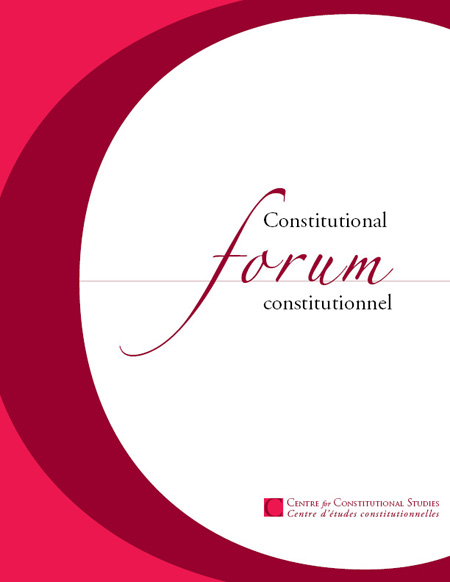Charter Checks and Parliamentary Balances
DOI:
https://doi.org/10.21991/C93H36Abstract
According to its most enthusiastic support- ers, the Canadian Charter of Rights and Free- doms1 fulfills two major functions in Canada’s democratic regime: 1) it shields minorities from the excesses of majoritarian decision-making, in effect guarding against the famous “tyranny of the majority”; and 2) it shields the majority from the excesses of power concentrated in the Canadian executive (“executive dictatorship”). While these two claims are in considerable ten- sion with each other, there is an even more im- portant conflict between each of them and the widely-accepted notion that most Charter cases arise from reasonable disagreements over cor- rect policy. It is difficult to work through these overlapping tensions without questioning the orthodoxy that judicial power under the Char- ter compensates for the lack of moderating checks and balances within our parliamentary system of government. To question that ortho- doxy is in turn to rediscover the merits of an older view, dating back to the founders, that did not consider the idea of parliamentary checks and balances to be an oxymoron. The rediscov- ery of parliamentary checks and balances does not imply the undesirability of additional judi- cial checks, but it does require a more nuanced understanding of those checks than the ortho- doxy provides.
Downloads
Published
Issue
Section
License
Authors who publish with Constitutional Forum constitutionnel grant the journal the right of first publication, and agree to license the work under an Attribution-NonCommercial-NoDerivs (CC BY-NC-ND) that allows others to share the work for non-commercial purposes, with an acknowledgement of the work's authorship and initial publication in this journal, as long as no changes are made to the original work. Please use this format to attribute this work to Constitutional Forum constitutionnel:
"First published as: Title of Article, Contributor, Constitutional Forum constitutionnel Volume/Issue, Copyright © [year], Publisher"





